Search
Remove Ads
Advertisement
Search Results
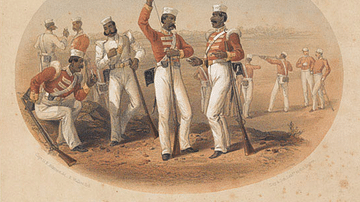
Article
Battle of Aliwal
The Battle of Aliwal on 28 January 1846 saw the British East India Company (EIC) defeat the Sikh Empire. One of four major battles during the First Anglo-Sikh War (1845-6), Aliwal was a decisive victory where the EIC's Bengal Lancers cavalry...

Video
Buddhism and Jainism - Part 2 Jainism
Welcome back to the 7th lesson in Indian history in which you will see about Jainism indian history/ jainism lecture for upsc, which we hope is usefull for your jainism and buddhism upsc exams, Certain questions have been asked about buddhism...
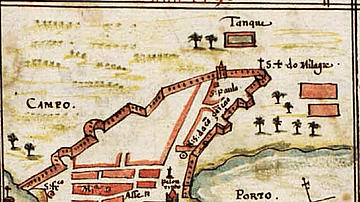
Image
Port of Kollam, India
An early 17th-century illustration of Kollam (Quilon) in southern India which became a colony of the Portuguese empire in 1505. Part of the Portuguese Estado da India, a fort was built at Kollam in 1515.
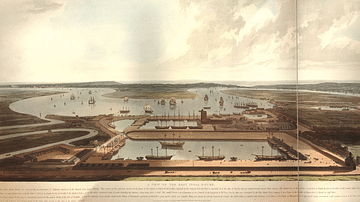
Article
Fall of the East India Company
The British East India Company (1600-1874) was the largest and most successful private enterprise ever created. All-powerful wherever it colonised, the EIC's use of its own private army and increasing territorial control, particularly in...
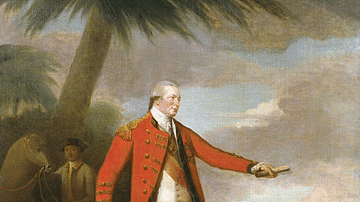
Article
Battle of Buxar
The Battle of Buxar (aka Bhaksar or Baksar) in Bihar, northeast India, on 22-23 October 1764 saw a British East India Company (EIC) army led by Hector Munro (1726-1805) gain victory against the combined forces of the Nawab of Awadh (aka Oudh...
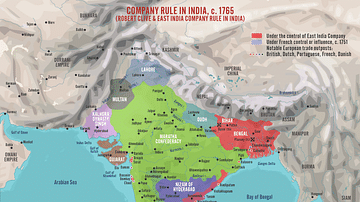
Image
Robert Clive & The East India Company Rule in India, c. 1765
A map illustrating the transformation of the East India Company from a hopeful merchant venture in 1600 with isolated trade outposts governed by isolated and mostly independent town councils into a major ruler of large territories in India...

Video
History of the English East India Company
Did you know the English East India Company’s tea trade was fueled by the opium trade? The English East India Company (EIC) – also known as the British East India Company – was an immensely successful trading company founded in 1600...

Collection
Portugal & the Age of Exploration
The Portuguese built an empire from 1420 onwards that was largely composed of trade centres dotted around the coasts of three continents. This colonial enterprise was driven by a search for African gold, Asian spices, and Christian kingdoms...
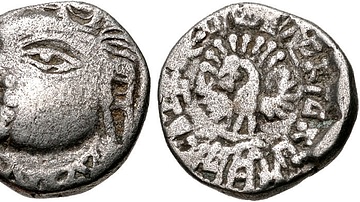
Image
Coin of King Ishanavarman
This coin was issued by the Maukhari king Ishanavarman (c. sixth century CE). It shows a diademed bust on one side, with a crescent on the diadem, probably representing the king himself. The other side has a peacock with its head turned left...

Video
The Lahore Museum: A Crucible of Research in Pahari Painting by Mr F S Aijazuddin
Pahari Painting | Lahore Museum | Art History His talk today will be on the Pahari paintings collection in the Lahore Museum and their significance in the art-historical research into the various schools.Before 1947, the Lahore Museum collection...